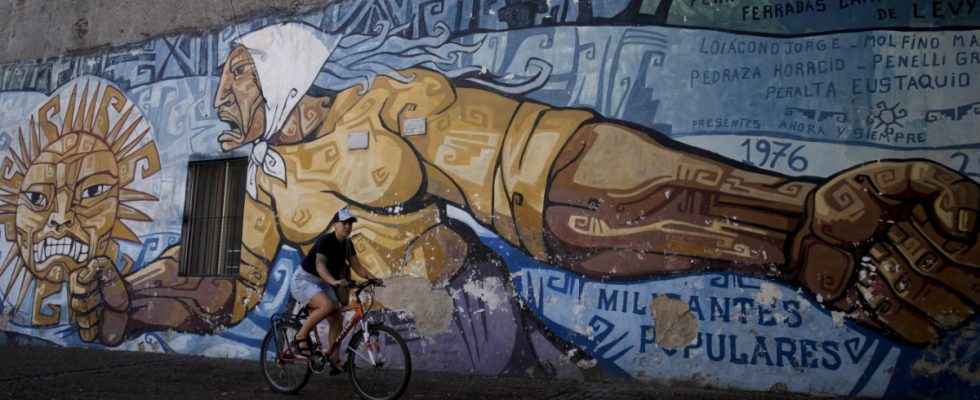March 24th was actually a day of hope in Argentina, despite everything: in 1976, the military took power on that date and thousands of people were kidnapped in the aftermath. Sometimes their corpses turned up, naked and bearing signs of severe torture, but often the victims disappeared without a trace, buried in mass graves or drugged and dumped from airplanes into the sea while still alive.
Democracy returned in 1983 and since then Argentina has dealt with the crimes of the dictatorship like no other country in Latin America: the first perpetrators were convicted as early as 1985 and the report of a truth commission was for a long time one of the best-selling books in the country. In 2006, March 24, the anniversary of the coup, was declared a public holiday by the then left-wing government. There were always large commemorative events under the motto “Memoria, verdad y justicia“memory, truth and justice, plus the demand “Nunca más“: never again.
The mothers’ television show is canceled
But this year everything is different. A right-wing libertarian government has been in power in Argentina since December last year. During the election campaign, President Javier Milei had already questioned human rights organizations’ estimates of the number of dictatorship victims: “It wasn’t 30,000,” Milei said in a TV debate and that he was against a “one-eyed” view of history. Milei’s vice president, Victoria Villarruel, herself comes from a family of high-ranking officers. One of her uncles was charged with crimes committed during the dictatorship, and the vice president often visited Jorge Videla, one of the junta generals, in prison.
Now that the new government has taken office, institutions that are trying to come to terms with the dictatorship are complaining about budget cuts and layoffs. This also affects the former ESMA, the former Armada mechanics school, which was one of the most notorious torture centers in the country in the 1970s and was later converted into a place of remembrance.
In February, the new Argentine government announced that a TV program by Mothers of the Plaza de Mayo would be removed from public television. They were just general madres The women mentioned above have always been an institution in Argentina: at the end of the 1970s, they publicly opposed the dictatorship and began demonstrating every week in the Plaza de Mayo in the center of Buenos Aires for their children who had been abducted by the junta. Some of the women themselves became victims of the regime.
The president’s main slogan
Today the white headscarves apply madres in Argentina as a symbol of the fight for human rights. Some of the mothers were also controversial, but for a long time no government would have dared to question their role – let alone cancel their TV show, which has been running for a decade and a half. They called it a “serious error in thinking.” madres the new government’s decision: “Milei is very wrong if he thinks he can end our fight just because he won’t let us broadcast anymore.”
Mothers from Plaza de Mayo, here at a meeting on March 24, 2000. Their white headscarves symbolize the fight for human rights.
(Photo: DPA)
The mood is becoming increasingly tense: publishers that specialize in books on human rights issues and coming to terms with the past are complaining that they are being flooded with hate messages online. And at the end of this week, the relatives organization HIJOS announced a serious attack on one of its female members: two men had ambushed the woman in her apartment. The attackers tied her up, beat her, abused her and repeatedly threatened her with death: “We don’t want to rob you, we want to kill you.”
HIJOS is withholding the name of those affected, but speaks of a “political attack”, also because the attackers sprayed “VLLC”, the abbreviation for “Viva la libertad carajo”, on the wall” (German “Long live freedom, damn it”), main slogan of President Milei.
He has not yet commented on the case, but Milei did like a post on the short message service X: Argentine human rights organizations are accused of abusing the victims of the dictatorship in order to denigrate the work of the current government.
Organizations – including the Mothers of Plaza de Mayo and HIJOS – had called for major events again on Sunday, March 24th. Rumors that the government planned to release human rights criminals to house arrest on grounds of age were denied. A few days before Remembrance Day, Defense Minister Luis Petri was photographed with a group of women: They are fighting for their husbands to be released from prison, where they are serving long sentences for crimes committed during the dictatorship. In the photo they proudly stand next to Defense Minister Petri – and he smiles into the camera.

